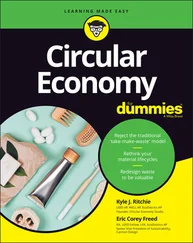 If you like to jog, keep the following pointer in mind: Besides having to dodge SUV-driving lunatics yammering on cell phones, running on hard asphalt isn’t good for your body. The older you get, the more careful you should be about the stresses and strains you’re placing on your joints. You should go for low-impact activities, such as swimming, cycling, or using an elliptical trainer to elevate your heart rate without stressing your joints.
If you like to jog, keep the following pointer in mind: Besides having to dodge SUV-driving lunatics yammering on cell phones, running on hard asphalt isn’t good for your body. The older you get, the more careful you should be about the stresses and strains you’re placing on your joints. You should go for low-impact activities, such as swimming, cycling, or using an elliptical trainer to elevate your heart rate without stressing your joints.
Exercise also has other benefits. As you age, your sense of (and ability to) balance slowly declines. Falls are one of the leading causes of injury and death among the elderly. More than one in three adults age 65 and older fall each year in the United States. Among older adults, falls are the leading cause of injury deaths. They’re also the most common cause of nonfatal injuries and traumatic hospital admissions.
Naturally, many people who fall develop a fear of falling. This fear may cause them to limit their activities, leading to reduced mobility and physical fitness and increased risk of falling.
To improve your balance and develop some strength, try the following activities:
Crunches: Performing crunches on an unstable surface, such as on a stability ball, forces your body to balance.
Light weight lifting: Use dumbbells instead of weight machines, because dumbbells force you to balance the weights better.
Standing exercises on one leg at a time: Doing these exercises helps you develop better balance.
Step-type moves: Activities such as lunges or step-up moves require you to balance your weight.
Hydrate with good-quality H 2O
You want to drink plenty of water to realize a variety of health benefits, especially for your digestion and intestines. Drinking water, preferably filtered, lubricates everything, allowing food to slide through your system more easily. It also quells hunger and fights bad breath. Furthermore, you need to regularly drink water as you age because your body’s ability to detect thirst weakens as you get older.
 The more active and larger you are, the more water you need to drink. The best indicator for whether you’re drinking enough water is the color of your urine; drink enough water that your urine is light yellow. ( Note: If you take vitamins, they may turn your urine bright yellow even if you are drinking enough water.)
The more active and larger you are, the more water you need to drink. The best indicator for whether you’re drinking enough water is the color of your urine; drink enough water that your urine is light yellow. ( Note: If you take vitamins, they may turn your urine bright yellow even if you are drinking enough water.)
Eric’s website ( www.erictyson.com ) has a summary of research on bottled water quality and demonstrates how most bottled waters are a waste of money. Your most effective and healthy avenue is to install a water filtration system at home to improve the virtually free tap water you’re already receiving.
Include fiber in your diet
If you’re eating healthy foods like fruits, vegetables, whole grains, oats, and beans, you’re also eating valuable fiber. (Some cereals have a decent amount of fiber as well.) The combination of fiber and water helps move food easily through your system without putting too much pressure on your intestines. Doctors recommend that men get 35 grams a day and women 25 grams.
 The other often-overlooked benefit of eating fiber-rich foods and being well hydrated is that the combination makes you feel full. Eating too much in general and eating too much of the wrong foods lead to obesity, heart disease, diabetes, and a variety of related problems.
The other often-overlooked benefit of eating fiber-rich foods and being well hydrated is that the combination makes you feel full. Eating too much in general and eating too much of the wrong foods lead to obesity, heart disease, diabetes, and a variety of related problems.
Stress does horrible things to your body. You can’t eliminate all stress, of course (and, besides, doing so would make life dull). However, you can do plenty to minimize it and turn it to your advantage. You can make the following health-conscious choices to keep stress under control:
Identify the sources of your stress. You can’t manage stress if you’re not clear on the real sources.
Focus on the moment. Spend time every day thinking about the here and now and not brooding over yesterday or worrying about tomorrow. Also, notice the things that most people tend to ignore — like breathing, bodily sensations, and emotions.
Take good care of your health. Make sure you have the other aspects of your life in order, such as getting enough sleep, eating well, and exercising. When you don’t, you’re more vulnerable to the stress.
Get moving. Exercise is one of the best stress (and depression) busters ever invented. See the earlier section “ Exercise (and sweat)!” for more information.
Do the opposite. Whenever people feel negative emotions, such as fear or anxiety, they tend to avoid them and withdraw. If you try experiencing the opposite emotions, you can start to feel better. So, for example, if you’re upset with someone, try to be empathetic instead of lashing out.
Focus on and relax your muscles. Tense and then relax the muscles in one part of your body (such as your legs, your arms, your face, and so on) at a time. Doing so reduces stress that you’re storing in your body.
Take some deep breaths. Take ten deep breaths in the morning and another ten at night — and as many as needed in between for stress relief. Find a position that helps you relax. For example, lie on the floor, flat on your back, with one hand on your chest and the other on your stomach. Breathe in deeply and slowly, picturing your lungs filling with air. When your lungs feel full, slowly breathe out.
Get your calcium and vitamin D
Most people don’t get enough calcium for optimal bone density. Most folks need about 1,500 milligrams daily from foods or supplements. So to reach your optimal health, make sure you’re taking in calcium. Foods plentiful in calcium include whole grains, leafy green vegetables, and nuts. It’s also often helpful to get some calcium from chewable calcium-citrate tablets.
 Along with your calcium, take 1,000 international units (1,200 for women over age 65) of vitamin D daily, which helps your immune system and your ability to fight illness and infections. Doing so helps your body absorb the calcium you take in. In addition, if you aren’t getting it in your diet, you want to add 400 milligrams of magnesium daily to prevent the constipation that calcium can cause. We provide a list of foods that are particularly high in magnesium in the earlier section “ Take care of your ticker.” These are merely recommendations. In all cases, you should check with your family doctor before taking any vitamins or other supplements.
Along with your calcium, take 1,000 international units (1,200 for women over age 65) of vitamin D daily, which helps your immune system and your ability to fight illness and infections. Doing so helps your body absorb the calcium you take in. In addition, if you aren’t getting it in your diet, you want to add 400 milligrams of magnesium daily to prevent the constipation that calcium can cause. We provide a list of foods that are particularly high in magnesium in the earlier section “ Take care of your ticker.” These are merely recommendations. In all cases, you should check with your family doctor before taking any vitamins or other supplements.
Chapter 3
Developing a Retirement Plan
IN THIS CHAPTER
 Figuring out when to retire
Figuring out when to retire
 Determining your financial needs and wants
Determining your financial needs and wants
 Understanding your financial building blocks
Understanding your financial building blocks
Читать дальше

 If you like to jog, keep the following pointer in mind: Besides having to dodge SUV-driving lunatics yammering on cell phones, running on hard asphalt isn’t good for your body. The older you get, the more careful you should be about the stresses and strains you’re placing on your joints. You should go for low-impact activities, such as swimming, cycling, or using an elliptical trainer to elevate your heart rate without stressing your joints.
If you like to jog, keep the following pointer in mind: Besides having to dodge SUV-driving lunatics yammering on cell phones, running on hard asphalt isn’t good for your body. The older you get, the more careful you should be about the stresses and strains you’re placing on your joints. You should go for low-impact activities, such as swimming, cycling, or using an elliptical trainer to elevate your heart rate without stressing your joints. The more active and larger you are, the more water you need to drink. The best indicator for whether you’re drinking enough water is the color of your urine; drink enough water that your urine is light yellow. ( Note: If you take vitamins, they may turn your urine bright yellow even if you are drinking enough water.)
The more active and larger you are, the more water you need to drink. The best indicator for whether you’re drinking enough water is the color of your urine; drink enough water that your urine is light yellow. ( Note: If you take vitamins, they may turn your urine bright yellow even if you are drinking enough water.) Figuring out when to retire
Figuring out when to retire










